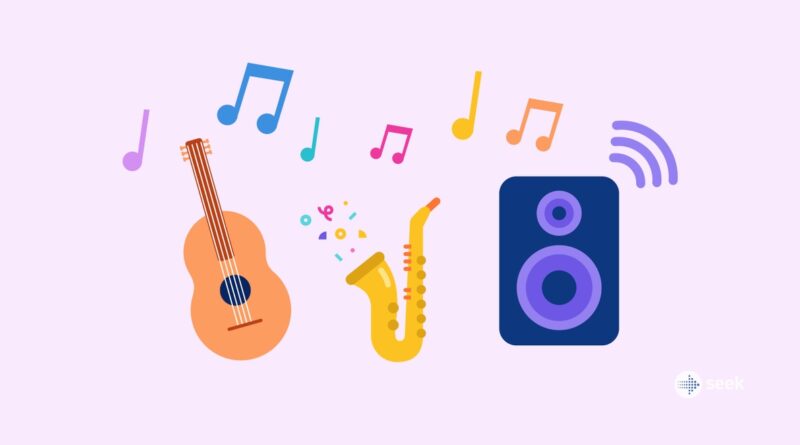The Power of Music: How It Impacts Our Lives
Music is an integral part of our daily lives. Whether we’re listening to our favorite tunes, attending a concert, or playing an instrument, music has a profound impact on our emotions, cognition, and even our physical well-being. From its therapeutic qualities to its ability to connect people across cultures, music is a universal language that transcends barriers. This article explores the power of music and how it influences our lives in various ways.
1. Music and Emotion
One of the most powerful aspects of music is its ability to evoke emotions. A song can make us feel happy, sad, nostalgic, or even inspired. Different genres of music can trigger distinct emotional responses, with upbeat pop music bringing joy, classical music evoking calmness, or rock music fueling excitement. Music can serve as an emotional outlet and help us process complex feelings.
2. Music and Memory
Studies have shown that music can improve memory and learning. People often use music as a mnemonic device, associating certain songs with specific events, people, or experiences. For example, a song might remind you of a particular time in your life or a special moment. Music therapy is also commonly used to help patients with memory disorders, such as Alzheimer’s disease, by stimulating the brain and aiding in recollection.
3. Music as a Stress Reliever
Listening to music has been shown to reduce stress and anxiety levels. Calm, soothing music can trigger a relaxation response in the body, lowering blood pressure and heart rate. Many people use music as a tool for relaxation, whether it’s listening to classical music, ambient sounds, or nature-inspired tunes. Music has the ability to calm the mind and provide a temporary escape from life’s pressures.
4. The Role of Music in Social Connection
Music has the power to bring people together. Whether it’s at a concert, a wedding, or a local music festival, music fosters a sense of community and belonging. Shared musical experiences create bonds between individuals, making it easier to connect with others and express emotions in a social context. Music also plays a vital role in cultural expression, allowing people to celebrate their heritage and traditions.
5. The Therapeutic Benefits of Music
Music therapy is a well-established practice used to treat a variety of conditions, from mental health disorders to physical rehabilitation. The therapeutic benefits of music include pain management, improved motor skills, reduced anxiety, and enhanced mood. For example, people undergoing rehabilitation after an injury may use rhythmic music to improve coordination and movement. Music is also used in psychotherapy to help individuals express emotions and explore their subconscious mind.
6. Music and Productivity
Listening to music can enhance productivity for some people. Instrumental music or low-tempo music can help improve focus, concentration, and creativity. Many individuals listen to music while working, studying, or even exercising to boost their productivity. Music serves as a background stimulant that keeps the mind engaged without causing distractions.
7. The Power of Lyrics
Lyrics have the ability to tell stories, express personal experiences, and offer social commentary. Many songs feature powerful messages that resonate with listeners on a deep level. Lyrics can inspire change, promote self-reflection, or provide comfort during difficult times. Whether through protest songs or love ballads, the words within a song can have a lasting impact on listeners’ beliefs and emotions.
8. Music in Movies and Media
Music plays a critical role in films, television shows, advertisements, and other media. It helps set the mood, build tension, or enhance emotional moments. A well-composed soundtrack can elevate a film, making scenes more memorable and impactful. Iconic soundtracks from movies like “Star Wars” or “The Lion King” are often remembered as much as the films themselves due to their ability to evoke specific emotions and associations.
9. Music and Cognitive Development
Learning to play a musical instrument has cognitive benefits, especially for young children. Studies suggest that children who learn music tend to have better language skills, enhanced memory, and stronger problem-solving abilities. The process of reading music, playing an instrument, and understanding rhythm can strengthen brain development and improve academic performance.
10. The Evolution of Music Technology
Music technology has transformed the way we create, consume, and share music. From vinyl records to streaming services, advancements in music technology have made it easier than ever to access a vast library of songs. Digital platforms like Spotify, Apple Music, and YouTube allow users to discover new artists and genres from around the world, making music more accessible and diverse than ever before.
11. Music as a Cultural Identity
Music is often closely tied to cultural identity. Traditional music and folk songs are passed down through generations, reflecting the values, beliefs, and history of a community. Many people use music as a way to connect with their cultural heritage and celebrate their roots. Music also serves as a platform for contemporary artists to express their experiences, challenges, and identities.
12. The Influence of Music on Fashion and Trends
Music and fashion often go hand in hand. Musicians are often seen as trendsetters, influencing fashion, hairstyles, and overall style. From the punk rockers of the 1970s to the hip-hop culture of the 1990s, music has played a significant role in shaping fashion trends and cultural movements. Artists like David Bowie, Madonna, and Kanye West have not only influenced the music industry but also changed the way people express themselves through clothing and style.
Conclusion
Music is more than just an art form—it’s a powerful force that impacts our emotions, our relationships, and our overall well-being. From its therapeutic benefits to its ability to connect people, music plays a vital role in our lives. Whether you’re listening to a favorite song, playing an instrument, or attending a concert, music enriches our experiences and has the ability to uplift and inspire.

